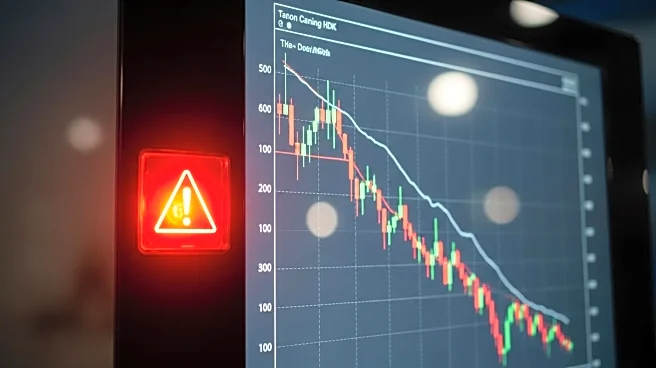What's Happening?
Jamie Dimon, CEO of JPMorgan Chase, has expressed concerns about a potential crash in the U.S. stock market. Dimon believes the probability of a market correction is higher than what is currently priced in by the market, suggesting a 30% chance compared to the market's 10% estimation. He cites geopolitical tensions, fiscal spending, and global remilitarization as contributing factors to the uncertainty. Dimon's comments align with warnings from other financial leaders, including the IMF's Kristalina Georgieva, who highlighted the resilience of the global economy amidst trade wars but cautioned about increasing risks.
Why It's Important?
Dimon's warning is significant as it comes from the leader of one of the largest banks in the U.S., potentially influencing investor sentiment and market behavior. A stock market crash could have widespread implications for the U.S. economy, affecting investments, retirement savings, and consumer confidence. The mention of AI companies' high valuations adds another layer of concern, as a correction in this sector could impact tech-driven economic growth. Stakeholders, including investors and policymakers, may need to reassess risk management strategies in light of these warnings.
What's Next?
The financial community may closely monitor market indicators and geopolitical developments to gauge the likelihood of Dimon's predicted correction. Investors might consider diversifying portfolios to mitigate potential losses. Policymakers could face pressure to address fiscal policies and international relations to stabilize market conditions. The ongoing discourse around AI valuations may lead to increased scrutiny and regulatory considerations.
Beyond the Headlines
Dimon's comments reflect broader concerns about the sustainability of current market trends, particularly in the tech sector. The potential for a market correction raises ethical questions about investment practices and the role of financial institutions in safeguarding economic stability. Long-term shifts in market dynamics could influence future investment strategies and regulatory frameworks.









